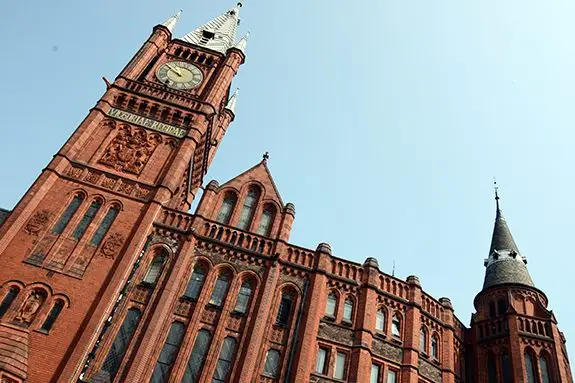Liverpool is set to host the renowned British Science Festival next year. This event will be celebrated over five exciting days from September 10 to 15, 2025.
The festival promises over 100 free events, exhibitions, performances, and installations. These activities will showcase groundbreaking research and innovation from local institutions.
A Landmark Event for Liverpool
The British Science Festival, one of Europe’s oldest science events, is making its way to Liverpool for the first time since 2008. The event celebrates its 194th anniversary and will be co-hosted by the British Science Association (BSA), Liverpool John Moores University (LJMU), and the University of Liverpool.
Approximately 100 free events will be open to the public, celebrating the achievements, people, and stories behind scientific discoveries.
A Rich History of Scientific Achievement
The University of Liverpool, established in 1881, is globally recognised for its contributions to research and education. With nine Nobel Laureates associated with it, the university has a storied history of scientific innovation. For instance, in 1896, Professor Oliver Lodge took the first surgical X-ray photograph in the UK, marking a significant milestone in medical history.
Today, the University of Liverpool continues to lead in fields such as materials discovery for net zero solutions and particle physics, highlighting its ongoing commitment to scientific advancement.
Collaboration and Innovation
Prof Anthony Hollander, Pro Vice Chancellor for Research and Impact at the University of Liverpool, expressed enthusiasm about the festival. He highlighted that Liverpool’s vibrant research and education landscape makes it an ideal setting for the event.
Collaborating with Liverpool John Moores University and other regional partners, the University of Liverpool aims to deliver an engaging and impactful festival for all attendees.
The collaboration underscores the importance of working together to promote scientific education and public engagement.
Liverpool John Moores University’s Contributions
Liverpool John Moores University, with a legacy spanning over 200 years, will also play a pivotal role. The university has made significant strides in various scientific fields, including the operation of the world’s largest robotic telescope and advancements in AI for wildlife conservation.
The university has also pioneered unique programmes like the UK’s first BSc Climate Change degree. Its contributions to forensic research, sports science, and facial depiction for criminal justice further emphasize its role in scientific progress.
Prof Keith George, Pro Vice Chancellor for Research and Knowledge Exchange at LJMU, noted that the festival will highlight the transformative work being done at Liverpool’s universities, promoting innovation and social responsibility.
Regional Support and Vision
Steve Rotheram, Mayor of the Liverpool City Region, expressed his commitment to making the region a hub for research and development. He emphasised the importance of fostering innovation in health, life sciences, and artificial intelligence.
Inclusive events like the British Science Festival provide an excellent platform to inspire the younger generation and spark interest in scientific fields.
The festival is expected to attract a diverse audience, bringing together experts and enthusiasts from various disciplines.
Anticipation and Excitement
Hannah Russell, Chief Executive of the British Science Association, shared her excitement for the upcoming festival. She praised Liverpool’s vibrant and diverse culture, which she believes will contribute to a spectacular programme.
The collaborative effort between two prestigious universities is set to make the event a significant milestone in the city’s scientific calendar.
The British Science Festival in Liverpool promises to be a landmark event, celebrating scientific achievements and fostering future innovation.
With strong support from local universities and regional leaders, the festival is set to inspire and engage attendees from all backgrounds.


